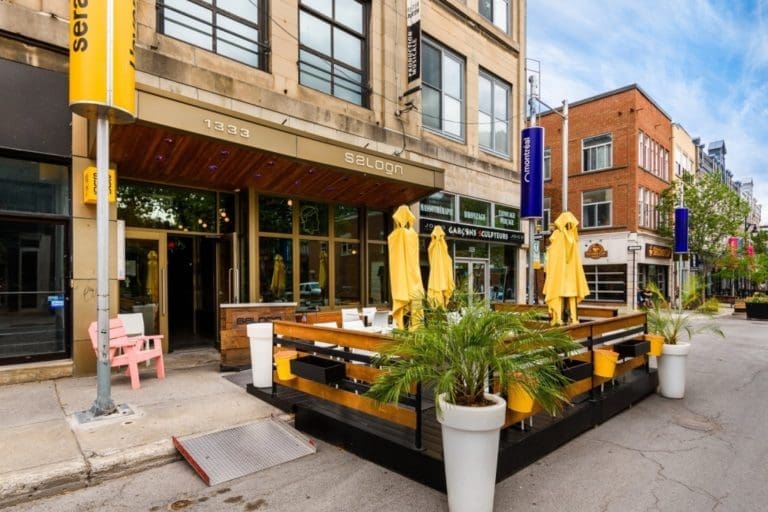Demystifying the goodwill in Quebec - Key informations
What is a goodwill?
A goodwill is a legal concept present in various countries such as Belgium or France. But this commercial notion is quite ambiguous and can lead to misunderstandings. In Quebec, what exactly is a goodwill?
A goodwill
In Quebec, a goodwill refers to an intangible asset, which means that it is not tangible. A goodwill is characterized by the combination of intangible and tangible elements that the trader owns in order to operate a commercial or industrial activity. These elements then make it possible to attract customers and retain them. A goodwill will be different depending on the commercial activity. However, the walls of the building, the receivables and the debts are not part of the goodwill. The legal regime will then be different when the business is sold.
Tangible elements
Tangible elements are elements that have a material existence. They refer to fittings, equipment and stocks that are related to the activity of the business. These are also the goods intended for sale. For example, if the business is a restaurant, the physical items could be chairs, tables, kitchen equipment etc.
Intangible elements
Intangible elements are elements that have no material existence. In a business, they can designate the trade name or trade sign, the various operating licenses and its reputation. However, it is the clientele and the right to lease that have the greatest value in a goodwill.

Its main components
The clientele
When buying a goodwill, customers are very important. Indeed, a goodwill could not exist without its customers. A clientele refers to all of the people who do business with the business. It must be autonomous and suitable for commerce. If the clientele evolves, the goodwill will also evolve. If the customer base is not exploited, the business will decline.
If too big changes take place, the clientele of the goodwill will change and this will reveal the birth of a new goodwill. But a cessation of activities in the business would make the clientele disappear and then the goodwill itself. The operation or non-operation of the business therefore determines the existence of the goodwill.
Traffic
Traffic is also an important component of a goodwill. Traffic refers to a transient clientele or a local clientele of the fund. Despite the fact that traffic does not refer to a goodwill’s own clientele, it is still important. Indeed, the higher the turnover of the business, the more traffic there is.
The right to lease
The right to lease refers to the right of the owner of the goodwill to carry out his commercial activities within the walls of the business, that is to say to become a tenant of the walls, until the termination of the lease. The acquirer of the business will then benefit from this right to the lease.
Sale of a goodwill
When selling the goodwill, you have to define the type of business. Is it a corporation or a business?
If it’s a corporation, you can buy the business and the shares go to the transferor.
If it’s a business, then you have to buy the entire business.
A broken down promise to purchase
After determining the type of business, all the elements of the goodwill must be broken down, that is to say to divide the expenses and the costs, on the promise to purchase. This is particularly important given the different activities that are possible in a goodwill. For example, when a buyer buys a clothing store, he buys his inventory. In this case, there are established prices for the goods or inventory. However, these prices will be paid separately, as the inventory is not stable over time and is constantly changing depending on the seasons.
A negociated agreement
Following the breakdown of the offer to purchase, a price agreement is negotiated between the seller and the buyer. Different steps must be taken such as the transfer tax, being the payment related to the change of ownership or the deed of assignment.
Before the signing of the deed of assignment, the seller must be responsible for having paid all his debts, works and various obligations related to the goodwill. After the signing of the deed of sale, the buyer is the new owner and will be responsible for all future expenses related to his commercial activity.
Purchase of a goodwill
Sustainability
When buying a goodwill, the majority of sellers want buyers to sign a new lease. Thus, sellers will not be held responsible for buyers. On average, a business requires a lot of time and money (in renovation, decoration, etc.). A buyer therefore wants to operate his goodwill for a period of at least five years.
The staff
As mentioned earlier, buying a goodwill means acquiring its clientele, but also having access to the staff and suppliers. It is the buyer’s choice whether to keep existing staff or not. However, it is important to remember that the loyal clientele of a business is often attached to its staff. The complete dismissal of staff or too drastic changes in the trade could then make the clientele insecure and even make it disappear. You must therefore make wise choices, because why change a winning formula!
Contact one of our commercial real estate brokers to help you with your sale or purchase of a goodwill.
Contact one of our real estate brokers

The Plateau-Mont-Royal amends its Zoning By-law (01-277).
The Plateau-Mont-Royal amends its Zoning By-law (01-277) In the midst of a housing crisis, the Plateau-Mont-Royal borough in Montreal has recently announced the adoption of

The FHSA or the Tax-Free First Home Savings Account
The FHSA – Key information Buying a home is an important investment that can lead to one of your best investments for life. There are

Lease renewal : what you need to know
Lease renewal : the important points As the deadline for lease renewal approaches, it is appropriate to point out a few details of the law







